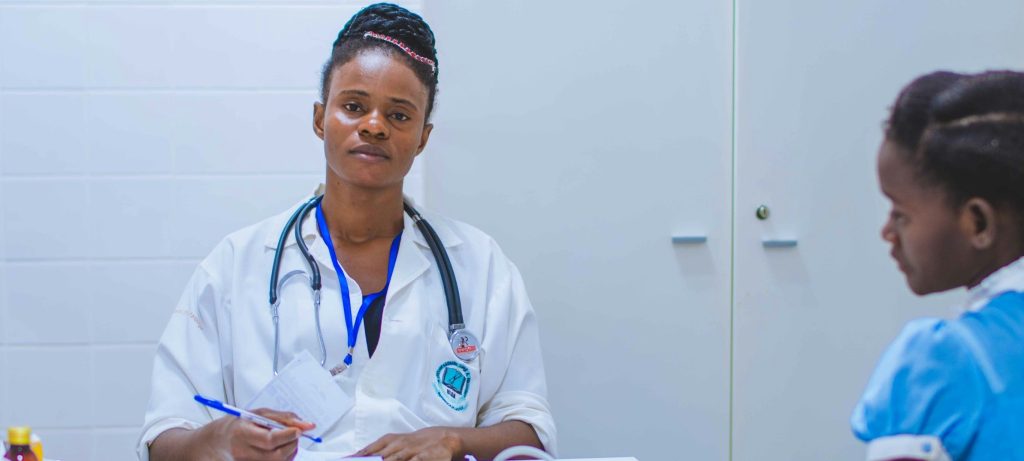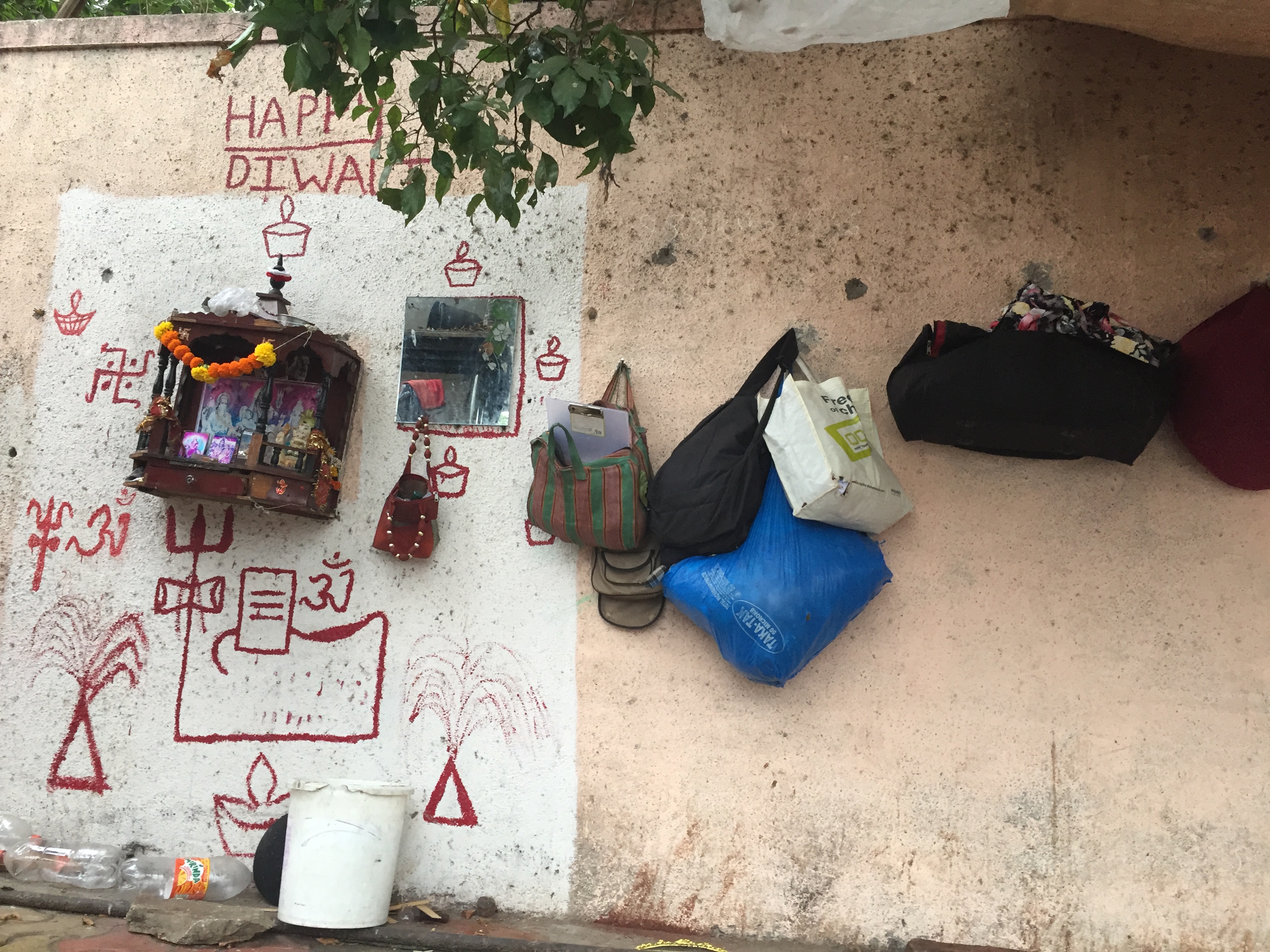Medical education in Africa involves a unique blend of cultural, community, and hands-on training – so why is it so undervalued in university rankings? LSE HE Blog Fellow Amy Paterson reflects on the reasons – and what needs to change
Young hands in a South African hospital
It is 3am and I am staring at the quivering vocal cords of a preterm baby. I slide a tiny tube through the cords and breathe out as the phone rings. The nurse takes the call. I squeeze some medication down the tube to help the baby’s new lungs expand, and a bag helps me temporarily take over the baby’s breathing, distributing the medication to the tips of the lungs.
“Emergency C-section, they’ll meet you in theatre,” the nurse offers me a sympathetic glance as we complete the task.
The small hospital theatre is calm as I check the anaesthetic machine and scrub up to my elbows. I speak quietly to the patient in the local language (isiZulu) and then insert the spinal needle. It is our third C-section of the night. I nod to the surgeon. We started this job together, now both three years out of medical school. His eyes betray a youthfulness you would not assume watching his gloved hands skillfully make the incision.
As we wheel mum and baby through to the recovery room, my phone lights up again. A patient in the surgical ward needs his chest drain reinserted. I check in with the neonatal nurse about the preterm baby on my way past. The night air gives way to sunrise without a witness.
Intentional training
Years later, when I attempt to explain to my international medical colleagues what an average shift looked like as a junior doctor in my hometown, they invariably describe the level of responsibility and scope of practice as horrifying or inconceivable. But at no point that night did I think my experience was either of those things. I had been trained to contextually understand the tasks at hand and perform them as safely as possible, just like my peers across the country and its borders.
Only later, on entering an international health education arena, did I realise how intentionally I had been trained with healthcare provision for under-served communities in mind. Despite the shortcomings in our systems, this training continues to be an exceptional feat and a testament to the dedication of many African-based medical educators.
Absent recognition
The African continent currently faces a triple burden of disease, with increasing rates of non-communicable diseases in addition to communicable diseases and injuries. But it also has the lowest healthcare worker density in the world, with only 29% of the medical doctors required to meet the World Health Organization (WHO) minimum standard. This means that more advanced competencies need to be taught to generalist clinicians, often early in training, a challenge rarely faced by medical schools in high-income settings.
However, the existing literature on African medical training primarily examines its weaknesses. These include valid concerns about keeping up with advances in care and best evidence, under-investment in human resourcing and infrastructure, additional load due to cultural competency courses, variation in supervision between facilities and outdated pedagogy. These continue to be patient safety issues and contribute to the high rates of morbidity and mortality in the region.
But, while these factors are being actively worked on, the unique strengths and competencies of African medical graduates and institutions deserve equal recognition.

The strengths of African-based training
Medical education that is responsive to extensive community need is no easy task, nor is it taken lightly. In 2023, there were 444 medical schools in Africa – many of which were established in direct response to health workforce shortages. The curricula in these universities are constantly being adapted to better serve the shifting needs of the populations, including adoption of Competency-Based Medical Education (CBME) and Problem-Based Learning (PBL).
In many of the curricula, focus is placed on social responsiveness, with training prioritising the needs of more vulnerable community groups and equipping graduates to be competent rural primary care practitioners. This primary care focus ensures strong knowledge of common conditions in the region, such as malaria, tuberculosis and HIV. This differs from many traditionally prestigious medical schools, which prioritise cutting-edge research, complex diagnoses and advanced treatment methods.
A growing number of programmes feature cultural competency training and courses to learn medical terminology in local languages. Given the diversity of languages in many contexts, this component is critical for patient communication and experience, but is no small addition. Programmes also aim to foster critical consciousness – a commitment to addressing issues of societal relevance in health care.
African-led health research is on the rise, allowing local actors to determine their own research priorities. This research also tends to have a strong sense of social responsiveness. Rwanda’s University of Global Health Equity was developed for this explicit purpose. The shift to more African research hubs also means the continent has a growing cohort of clinician-scientists, passionate about addressing the issues they witness in clinical practice. Innovations in education and health-tech are also on the rise. For example, Tunisia developed a high-tech medical simulation centre to teach technical clinical procedures during Covid-19.
Breadth and depth of experience are a major contributor to Africa’s capable medical workforce
Finally, there is strength to be found in the clinical competency of African-trained graduates – the breadth and depth of experience are a major contributor to Africa’s capable medical workforce. Training in these settings not only hones practical skills, but also clinical examination and judgement by removing the possibility of reliance on investigations (such as CT scans and MRIs, which may be less available). Adaptability is fostered as graduates learn to work effectively in low-resource settings.
The gap in practical competencies between graduates from Africa and their high-income peers is most frequently noted in reviews of medical elective and exchange programmes. These organised programmes offer medical students and professionals an opportunity to work in different healthcare settings, often with a focus on hands-on experience. The literature describes the benefits of African-based electives for improving the clinical skills of high-income country trainees from a range of disciplines and levels.
Rank unfairness
Thanks to the strengths of African medical education described above, the continent is producing many capable, adaptable, and dedicated doctors. While these doctors often work in adverse conditions, their skill sets, and the training that produced them, should not be under-acknowledged.
However, the lack of recognition of African-based medical education in the literature is also reflected in university rankings. Of the 444 existing African medical schools, only one institution made it into the top 100 in both the Times Higher Education and QS field-specific rankings. One reason for this is that the scoring metrics for these rankings (which are portrayed as globally relevant) largely represent the priorities of high-income countries.
No clear reason is given as to why the metrics aren’t internationally relevant
These priorities include citations and internationalism rather than responsiveness to local need. Times Higher Education has attempted to address this by creating a separate ranking for Sub-Saharan African universities, which includes societal impact and ethical leadership as metrics. While this separate approach proves the feasibility of including such metrics, no clear reason is given as to why the metrics aren’t internationally relevant. Serious consideration needs to be given either to the inclusion of social responsiveness and competency metrics in international rankings of medical schools, or to the global legitimacy of these rankings.
In the interim, acknowledgement of health educators across the African continent is due through international platforms and initiatives. Their ongoing dedication helps to ensure that graduating healthcare professionals are not only clinically competent, but also critically conscious of the contexts in which they serve.
_____________________________________________________________________________________________ This post is opinion-based and does not reflect the views of the London School of Economics and Political Science or any of its constituent departments and divisions. _____________________________________________________________________________________________
Main image: Francisco Venâncio on Unsplash





